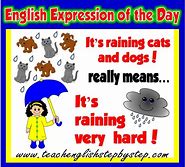عام
- University: Laarbi Ben M'hidi University of Oum El Bouaghi
Faculty: Letters and Foreign Languages
Department: English Department
Module / Subject: Comprehension of Oral Expression (COE)
Level: 1st year EFL students
Semester: 1
Unit Type: Fundamental unit (UEF1)
Coefficient: 2
Credit: 4
Contact Details:
Instructor Name: Dr. Dib Fatima Zohra
Email Address : dibmaram4@gmail.com
Objectives:
This course aims at:- Helping students communicate effectively in English language
- Developing students’ listening and speaking skills
- Assisting students to adapt to different speaking situations.
Pre-requisite:
Before embarking in the course, students should have a general knowledge in English language. Students should at least know the basics of English.
Students should be aware of sound distinctions and their importance in speech comprehension and production, and of degrees of formality and registers.
Course Programme (Outline):
Unit One: Introducing Yourself
Unit Two: A Talk about Motivation
Unit Three: Tech Addiction and Social Media Detox
Unit Four: Social Media and Social Media Influencers
Unit Five: Idiomatic Expressions
Unit Six: Food
Evaluation Method:During each session, a set of listening or speaking activities will be given to students . These activities will be marked and all points that students are going to collect will be counted as a part of their TD mark (5pts) in addition to presence (5pts), discipline and particiaption (2pts), and a listening Test (8pts).
The exam is out of 20 pts
- Helping students communicate effectively in English language

 In what way you think social media is helping you in your daily life or wasting your time?
In what way you think social media is helping you in your daily life or wasting your time? •What are the possible solutions that you have thought of / tried to end your digital addiction?
•What are the possible solutions that you have thought of / tried to end your digital addiction?

